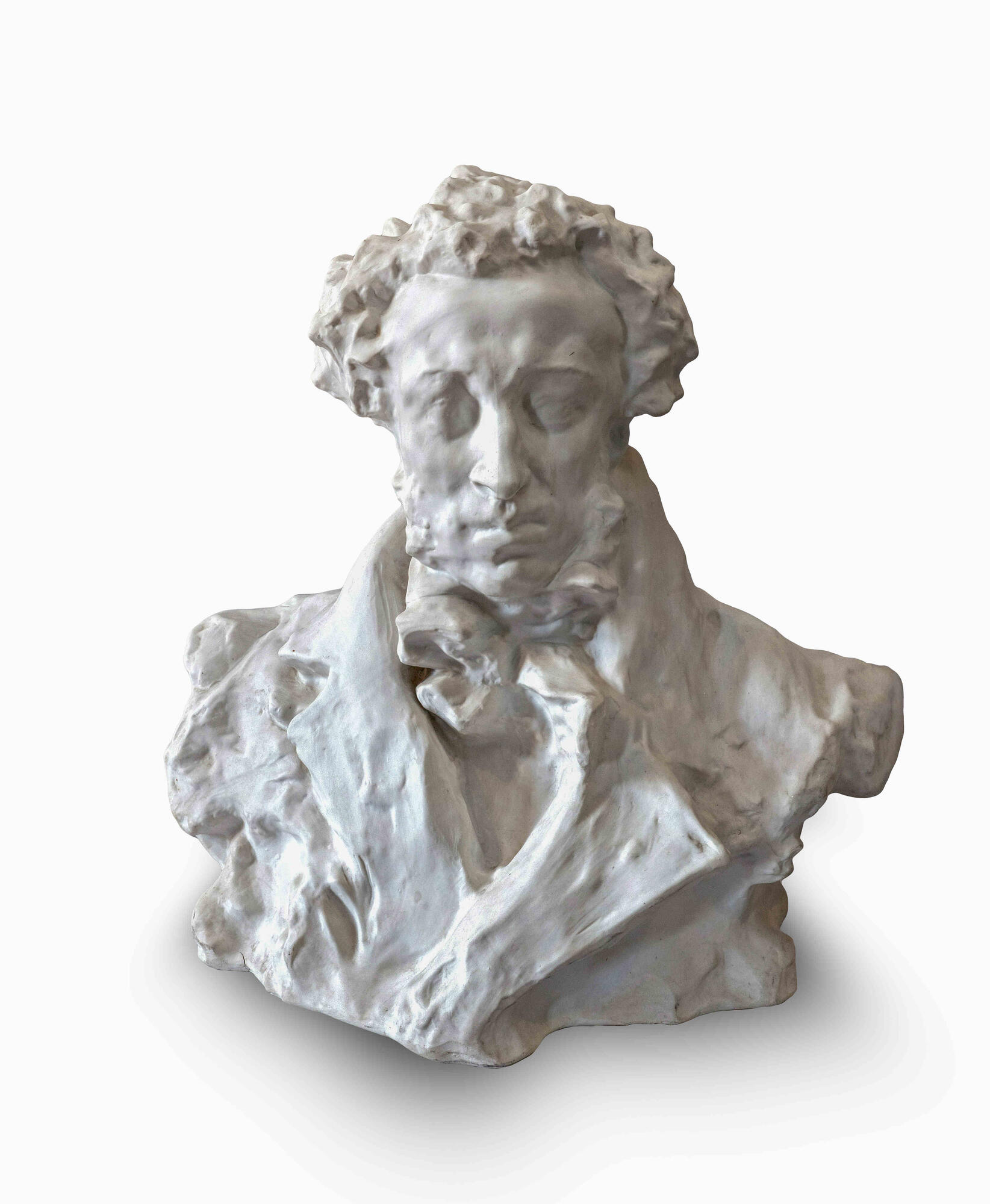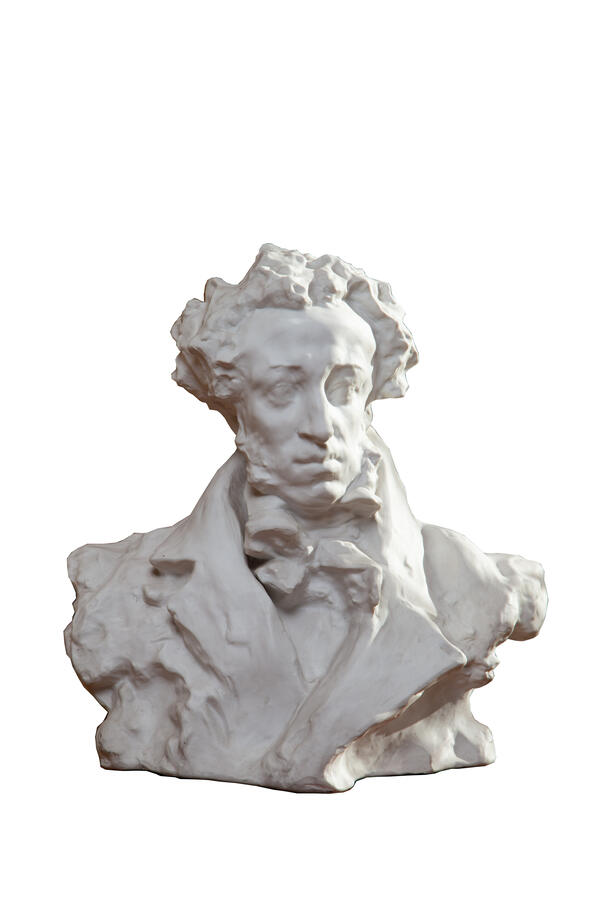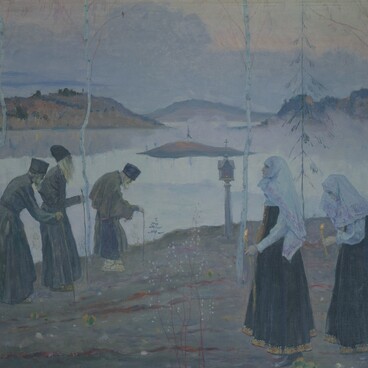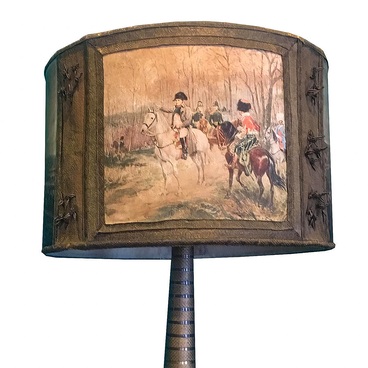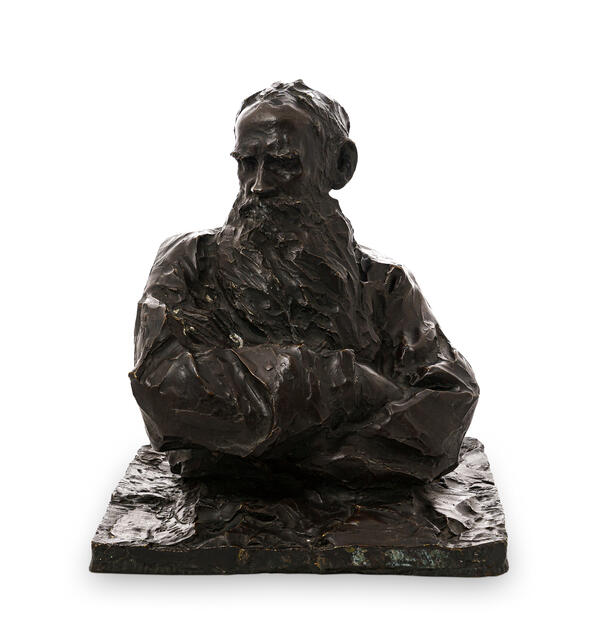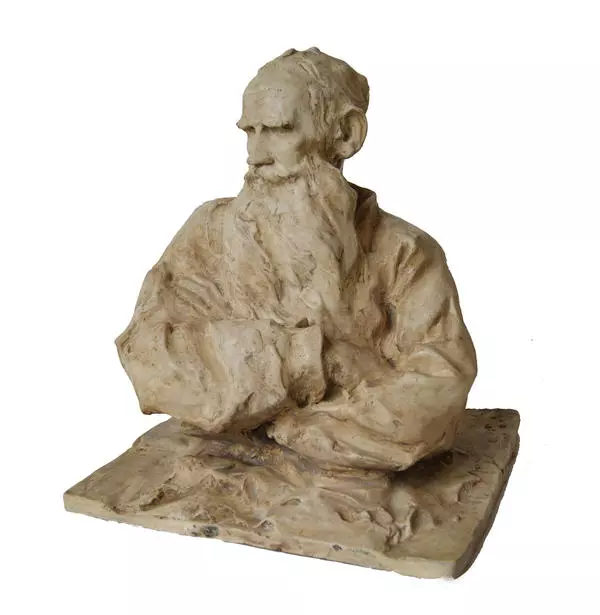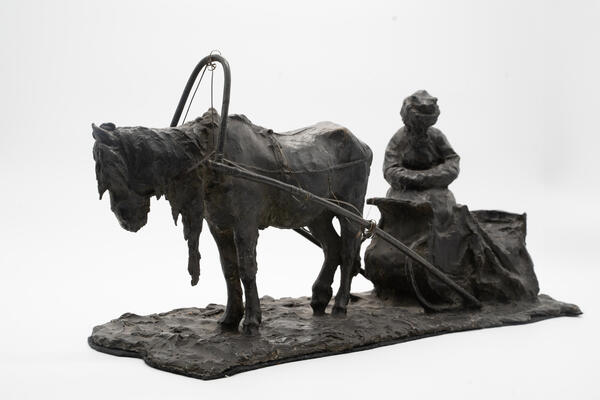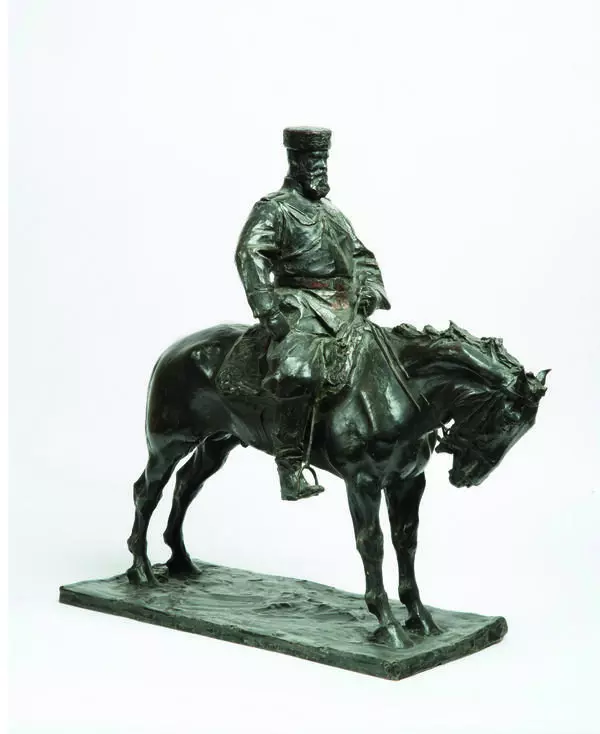Nikolai Semyonovich Golovanov was an admirer of Alexander Pushkin’s works: the conductor’s library houses volumes of his poems, all covered with notes made in pencil, and Golovanov’s letters and memoirs are filled with quotes from the poet’s works and allusions to the famous lines. Nikolai Golovanov’s collection contains two sculptural portraits of the greatest Russian poet, both are porcelain copies of the renowned originals. The bust portrait of Alexander Pushkin by Pavel Trubetskoy was cast from the bronze original of 1899, which was timed to coincide with the poet’s 100th anniversary when many sculptors created a number of sculptures portraying him.
From the entries Nikolai Golovanov made in his diary in 1952, “I have made fascinating acquaintances throughout my life. In Moscow, on the day of the 100th anniversary of Alexander Pushkin’s death, the Maltsov Museum of Western Art was renamed the Pushkin Museum. Bubnov (the then People’s Commissar for Education), our good friend, pronouncing r’s in the French manner, introduced us to the great-great-granddaughter of the famous poet during the tea ceremony. I was mystified by the amazing resemblance. A wonderful child of about 9 years old appeared before us, the spitting image of Pushkin: she startled me and Antonina Vasilyevna with her oval face, swarthy complexion, intelligent blue eyes, curls on her head, and prominent ‘Arab’ cheekbones. We knew the son of Alexander Sergeyevich — a general, a gray-haired guardsman with a hussar’s pelisse and sideburns, but he was an old man. And here suddenly was a young Pushkin. This might have been what he was like in the lyceum when he read Parny and anthology books, what he was like for old Derzhavin.”
The conductor also created a number of works based on poems by Alexander Pushkin — a song cycle called “Seven Songs for Voice and Symphony Orchestra” (Op. 35): 1. “Nightingale” (“In the silence of the gardens”); 2. “From Horace” (“The young man was sobbing bitterly”); 3. “From Horace” (“It is not the rose of Paphos”); 4. “From Anacreon” (Petronius “Caesar was traveling”); 5. “I loved you”; 6. “His poem’s delightful sweetness”; 7. “Imitation of a Turkish Song” (“O thou rose-maiden”), as well as an excerpt for voices and piano “The Miserly Knight”. In addition, Scene 3 was composed to Pushkin’s lyrics (in the duke’s palace), as well as the romance “No, never think, my dear, that in my heart I treasure…”, which is included in a cycle of four works based on poems by various poets.
From the entries Nikolai Golovanov made in his diary in 1952, “I have made fascinating acquaintances throughout my life. In Moscow, on the day of the 100th anniversary of Alexander Pushkin’s death, the Maltsov Museum of Western Art was renamed the Pushkin Museum. Bubnov (the then People’s Commissar for Education), our good friend, pronouncing r’s in the French manner, introduced us to the great-great-granddaughter of the famous poet during the tea ceremony. I was mystified by the amazing resemblance. A wonderful child of about 9 years old appeared before us, the spitting image of Pushkin: she startled me and Antonina Vasilyevna with her oval face, swarthy complexion, intelligent blue eyes, curls on her head, and prominent ‘Arab’ cheekbones. We knew the son of Alexander Sergeyevich — a general, a gray-haired guardsman with a hussar’s pelisse and sideburns, but he was an old man. And here suddenly was a young Pushkin. This might have been what he was like in the lyceum when he read Parny and anthology books, what he was like for old Derzhavin.”
The conductor also created a number of works based on poems by Alexander Pushkin — a song cycle called “Seven Songs for Voice and Symphony Orchestra” (Op. 35): 1. “Nightingale” (“In the silence of the gardens”); 2. “From Horace” (“The young man was sobbing bitterly”); 3. “From Horace” (“It is not the rose of Paphos”); 4. “From Anacreon” (Petronius “Caesar was traveling”); 5. “I loved you”; 6. “His poem’s delightful sweetness”; 7. “Imitation of a Turkish Song” (“O thou rose-maiden”), as well as an excerpt for voices and piano “The Miserly Knight”. In addition, Scene 3 was composed to Pushkin’s lyrics (in the duke’s palace), as well as the romance “No, never think, my dear, that in my heart I treasure…”, which is included in a cycle of four works based on poems by various poets.
